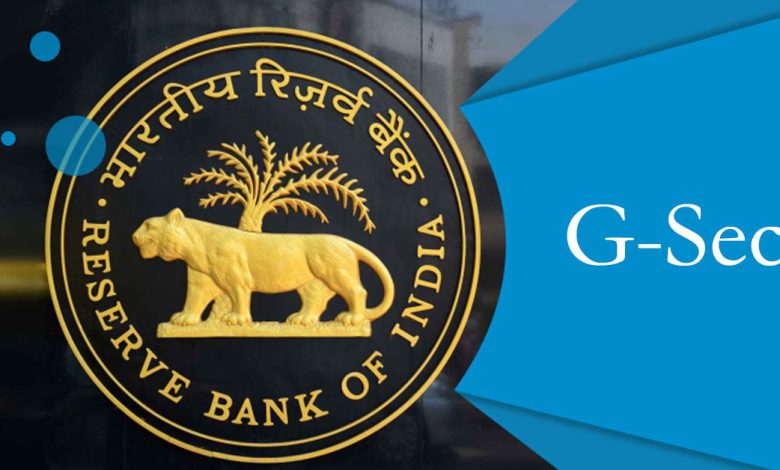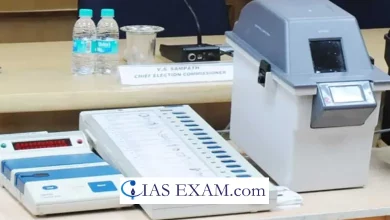Daily Current Affairs for UPSC
Yield of G-secs
Syllabus- Government Policies and Interventions [GS Paper-2]

Context- The yield on the benchmark 10-year government security (G-sec) in India has seen a downfall, suggesting a conversation starter to retail investors about their venture technique.
Key Highlights
- The Reserve Bank of India (RBI) has opened up the public authority protection market to retail financial backers, however their cooperation has been moderately low.
Why did the G-sec yield decrease?
- Due to changes in the taxation of debt mutual funds, the benchmark 10-year government security (G-sec) now yields 6.9%, down from 7.4% at the beginning of March 2023. It is as of now exchanging at around 6.96-6.99%.
- The advantage of indexation in the computation of long haul capital additions on obligation shared reserves was eliminated.
- The decline in government security yields has been influenced by a number of factors, including changes in debt mutual fund taxation, the RBI’s decision on the repo rate, and falling inflation.
Why are retail investors not participating as much in G-Secs?
- Lack of Investor Guidance:
-
-
- The process of investing in government bonds for retail investors is difficult and necessitates guidance, possibly from intermediaries.
-
- Limited Liquidity:
-
-
- The process of investing in government bonds for retail investors is difficult and necessitates guidance, possibly from intermediaries.
- Limited Cash Flow:
- Retail investors have a difficult time selling their securities on the secondary market because of the lack of liquidity in the G-Sec market.
- Investors may find themselves stuck with their investments as a result of this lack of liquidity.
-
- Intricacy of Venture:
-
-
- Retail investors, especially those who aren’t well-informed, may find the G-Secs investment process intimidating and prefer simpler options like fixed deposits.
- The RBI Retail Direct platform is useful for well-informed investors, but it may not be suitable for participants who aren’t well-informed and would like the investment process to be simpler.
-
- Low volumes of trading:
-
-
- The exchanged volume of the auxiliary market for G-Secs has been somewhat low, further diminishing the appeal for retail financial backers.
-
- Alternative Investment Options:
-
- Retail financial backers might consider other venture roads, for example, fixed stores, which have seen expanded loan fees, or investigating new bonds, NCDs (Non-Convertible Debentures), and mail center store plans.
What are Government Securities?
-
- A tradable instrument issued by the Central or State Governments is a G-Sec.
- A G-Sec is a kind of debt that the government issues in order to borrow money from the public to pay for its fiscal deficit.
- A debt instrument is a type of financial instrument that represents the issuer’s contractual obligation to pay the holder a specific amount of money, known as the principal or face value, on a particular date.
- It acknowledges the debt obligation of the Government. Such protections are present moment (as a rule called depository bills, with unique developments of short of what one year-by and by gave in three tenors, specifically, 91-day, multi day and multi day) or long haul (for the most part called Government bonds or dated protections with a unique development of one year or more).
- In India, the Central Government issues both treasury bills and bonds or dated securities, while the State Government only issues bonds or dated securities, or SDLs.
- G-Secs are referred to as risk-free gilt-edged instruments because they carry virtually no default risk.
- Plated edged protections are high-grade venture securities presented by states and enormous companies for acquiring reserves.
- To adjust the state of the money supply, the RBI conducts OMOs—Open Market Operations—for the sale or purchase of G-secs.
- To inject liquidity into the system, the RBI buys back g-secs and sells g-secs to remove liquidity from the system.
- Bond Yield:
-
-
- Security yield is the return a financial backer acknowledges on a security. The numerical recipe for computing yield is the yearly coupon rate partitioned by the ongoing business sector cost of the security. Cost and yield are contrarily related: As the cost of a security goes up, its yield goes down, as well as the other way around.
-
- Bond:
-
-
- It is an instrument to acquire cash. Security could be given by a nation’s administration or by an organization to raise reserves.
-
- Coupon Cost:
-
- It is the rate at which bond issuers pay interest on the face value of the bond.





.png)



